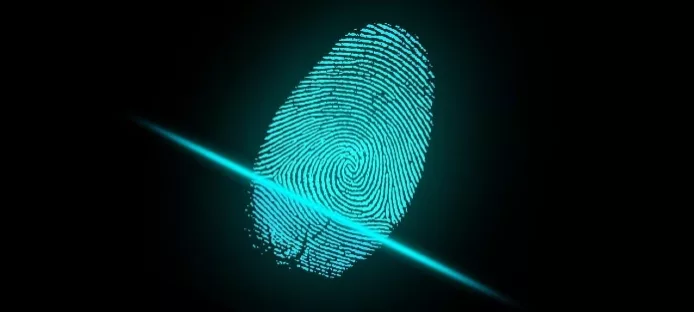What is Crime Scene Investigation?
Crime scene investigations involve employing forensic science tools, procedures, and processes to investigate a crime scene and collect forensic evidence.
Forensic Science in Crime Scene Investigations
Forensic science, more commonly known as forensics, is the application of sciences to answer questions of interest to a legal system. Forensics may be used to answer questions concerning a crime or a civil action.
Forensics encompasses the accepted scholarly or scientific methodology and norms under which the facts regarding an event, an artifact, or some other physical item (such as a corpse) are ascertained.
The concept, therefore, is related to the notion of authentication, whereby an interest outside of a legal form exists in determining whether an object is what it purports to be or is alleged to be.
Forensic comes from the Latin adjective forensis, meaning “of or before the forum.” In Roman times, a criminal charge meant presenting the case before a group of public individuals in the forum. The person accused of the crime and the accuser would give speeches based on their side of the story.
The individual with the best argument and delivery would determine the case’s outcome. This origin is the source of the word’s two modern usages: as a form of legal evidence and as a category of public presentation.
Private investigators with specialized training and education may engage in various forms of forensic investigations such as Forensic accounting, forensic computer software examination and analysis, document examinations, environmental analysis, and crime scene investigations.
Ballistics and Firearms
Ballistics is the science that deals with the motion, behavior, and effects of projectiles, especially bullets, gravity bombs, rockets, or the like; the science or art of designing and hurling projectiles to achieve the desired performance. A ballistic body is a body that is free to move, behave, and be modified in appearance, contour, or texture by ambient conditions, substances, or forces.
Following are websites that provide information on firearm identification and ballistic forensics:
- Association of Firearm and Toolmark Examiners – The Association of Firearm and Toolmark Examiners is a professional organization for those in the forensic ballistics field. This site contains news, information, and links.
- Firearms Identification and Forensic Ballistics – FirearmsID.com contains information on firearms identification, including identification of bullets, cartridge cases, and other ammunition components as having been fired from a specific firearm. It also describes the responsibilities of an expert witness.
Crime Scene Investigation Resources
- Association for Crime Scene Reconstruction– an Association that encourages exchanging information and procedures to reconstruct criminal locations.
- Crime & Clues – Articles on the art and science of criminal investigation, covering numerous types of evidence, including fingerprint, physical, testimonial, and behavioral.
- Crime Scene Clean-up – Group dedicated to helping compassionately, safely, and discreetly restore a scene to a safe state.
- Arrowhead Forensics – Provides a wide selection of tools, equipment, and supplies.
- International Crime Scene Investigators Association – Assists law enforcement personnel involved in this line of duty.
- International Homicide Investigators Association – Assists and supports law enforcement agencies and death investigation professionals by providing leadership, training, resources, and expertise to enhance their ability to solve cases.
Document Examiners
American Society of Questioned Document Examiners – Fosters education, sponsor scientific research, establish standards, and exchange experience. Also, the ASQDE provides instruction in questioned document examination and promotes justice in matters involving questions about documents.
DNA Lab Testing
American Society of Crime Laboratory Directors – The ASCLD is dedicated to providing excellence in science analysis through leadership in managing forensic science.
Also, see our article on DNA Lab Testing.
Evidence Collection, Storage, and Processing
Evidence, in its broadest sense, includes everything used to determine or demonstrate the truth of an assertion. Giving or procuring evidence is the process of using those things that are either (a) presumed to be accurate or (b) were themselves proven via evidence to demonstrate an assertion’s truth. Evidence is how the burden of proof is fulfilled.
Evidence Collection techniques vary by the evidence type and location. The primary purpose of evidence collection is to retrieve the evidence “as-is” without damaging the evidence. It must be handled correctly and packaged to minimize deterioration and contamination.
Crime Scene Procedures – A brief explanation of collecting evidence, collection methods, and chain of custody procedures.
Evidence Packaging Procedures – A comprehensive list of procedures published by the Illinois State Police Division of Forensic Services. Explains how materials are to be placed in containers sealed with the correct tape and marked with the officer’s initials and the date. This detailed guide covers everything from drugs to articles of clothing. This a great example of a quality guide.
Guidelines for Evidence Submission – The Department of Public Safety, Division of Scientific Services in Connecticut guidelines. The guide explains how various items should be packaged, marked, and labeled. Also, it explains how to complete the necessary forms. Includes guidance on objects gathered from fire scenes, sexual assault cases, blood samples, bombs and explosives, gunshot residue, paint samples, hairs and fibers, firearms, latent prints, and more.
Fingerprinting
Fingerprinting – An overview of the fingerprinting process and a collection of links and information on fingerprinting.
Forensic Psychology and Psychiatry
- American Academy of Forensic Psychology – The education and training arm of the American Board of Forensic Psychology (ABFP) is responsible for the diplomating process in forensic psychology.
- American Psychological Association – The APA is a scientific and professional organization representing psychology in the United States. It is the largest association of psychologists worldwide.
- American Psychiatric Association – A medical specialty society recognized worldwide. The U.S. and international member physicians work together to ensure humane care and effective treatment for all persons with mental disorders, including mental retardation and substance-related disorders.
Forensic Science
- American Academy of Forensic Science – A professional society devoted to the application of forensic science and law
- American Board of Forensic Odontology – Composed of national and world-renowned experts.
- American Board of Forensic Toxicologists – The ABCFT works to establish, enhance, and revise, as necessary, standards of qualification for forensic toxicology and certifies voluntary applicants as qualified specialists.
- National Forensic Science Technical Center– A not-for-profit corporation funded by a Cooperative Agreement with the National Institute of Justice (NIJ) provides programs that build individual competency and quality systems for the forensic science community in the United States.
Crime Scene Investigation Books
Qualified law enforcement specialists usually handle crime scene investigations. However, private parties may hire private investigators to investigate the facts of the case. Private eyes skilled at investigating crime scenes can sometimes find information or clues that the police miss.
A private investigator’s persistence and eye for detail may lead to solving the case. Having a library of crime scene investigation books is helpful for any investigator who wants to develop the skill of investigating criminal locations. These books will help a P.I learn how to:
- How to secure a crime scene and conduct an in-depth and thorough investigation
- Collect Forensic evidence and photographs
- How to collect evidence such as fingerprints, hair, blood, stages of body decay, and other fibers
- How to identify, trace, and analyze evidence from firearms and explosives
- How to secure, store, and analyze data gathered to help solve the mystery
- How to document and report evidence and information found during a forensic analysis
- How to pursue a career in the field, where to look for jobs, and how to get a CSI job
| Preview | Product | Price | |
|---|---|---|---|

|
The Forensic Casebook: The Science of Crime Scene Investigation |
$17.65 |
Buy on Amazon |
This book covers a series of true stories about how criminal behavior is investigated and solved. The criminals were captured with the help of information, data, and forensic evidence gathered from the violation scene. The reference book is based on interviews with police and forensic specialists. The guide also discusses potential jobs and career paths related to criminal science.
| Preview | Product | Price | |
|---|---|---|---|

|
Techniques of Crime Scene Investigation | $55.68 | Buy on Amazon |
This is an excellent manual for private investigators, technicians, and forensic scientists to learn how to apply science and technology to collect evidence. This helpful guide reviews a criminal investigation’s concepts, techniques, and procedures. Learn about the latest in forensic DNA collection and lab testing, digital evidence, photography, and evidence processing.
| Preview | Product | Price | |
|---|---|---|---|

|
Crime Scene Investigation, Third Edition |
$113.71 |
Buy on Amazon |
This textbook takes the reader from the point of first arriving on the scene to presenting physical evidence and data in the courtroom. You’ll find information not typically covered in other CSI books, including photographs, illustrations, and real-life examples. Also helpful is an extensive glossary of key terms and discussion questions.
| Preview | Product | Price | |
|---|---|---|---|

|
Practical Crime Scene Processing and Investigation, Third Edition (Practical Aspects of Criminal and… |
$85.50 |
Buy on Amazon |
This forensic book focuses on the practical aspects and processing of the evidence. This guide explains what forensic scene investigators do in their day-to-day work, including the procedures and steps typically involved. Also included is an overview of the theory and the ethical side. Includes discussions, detailed data, and real-life examples to help private detectives learn how to apply the tools to their investigations.
More Information
Also, check out our complete list of Private Investigator Books, Forensic Investigation Books, and the CSI – Crime Scene Investigations TV Show.
Hire a Private Investigator
Many private investigators specialize in crime scene investigations and have former experience as police officers. To hire a private investigator specializing in this work, please visit our Private Investigator Directory.
Please leave a message below if you have questions about crime scene investigations.


